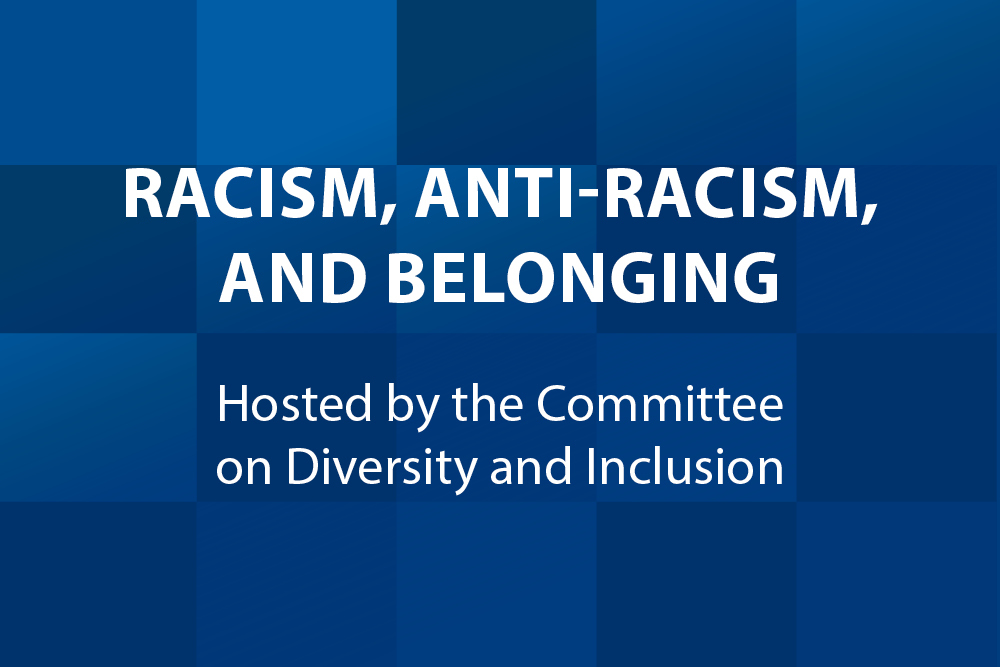On August 19, faculty and staff from Eastern Mennonite University gathered for a required online session on “Racism, Anti-Racism, and Belonging” hosted by the Committee on Diversity and Inclusion. The session was one of several on the agenda for EMU’s annual faculty/staff conference.
“There is the national context right now with Black Lives Matter, a global pandemic, economic distress, and these contexts impact us here. There’s also an EMU context,” said Professor Kathy Evans, who co-chairs the committee with Celeste Thomas, director of Multicultural Student Services. “EMU is a predominantly white school. A white space in a society that carries a history and a legacy of white supremacy. This is our context. We can’t avoid that or try to minimize that. We have to confront that.”
While the session was intended for all faculty and staff, Evans said. “we realize that EMU is a predominantly white space and that we each show up to this work with a variety of backgrounds and experiences. We hoped this session would provide some foundational concepts that would help us have more effective ongoing conversations.”
The EMU community continues to interact with the context of the Black Lives Matter movement as the semester begins. Recently, Jacob Blake joined the many others of Black victims of police violence who were remembered at the March on Washington on Friday. The Black Student Alliance facilitated virtual participation in the march, and some faculty integrated the event into their course curriculum.
Evans encouraged participants in the August 19 training to attend the march, as well as an Aug. 23 “Race Matters” presentation led by SGA and BSA for students and all community members. CODI also hosted a follow-up discussion session for faculty and staff to delve more into the material presented during their training. CODI will also host more opportunities for ongoing conversations throughout the year.
One lesson in the Committee on Diversity and Inclusion training was the difference between “inclusion” and “belonging,” and why institutional leaders need to prioritize “belonging” for students of color.
“Belonging is something qualitatively different. It’s the actual feeling of belonging. It’s the feeling that you’re part of something,” Evans said. In contrast, the act of “inclusion” requires a dominant social group to extend an invitation – meaning that belonging isn’t intrinsic to that space.
Other concepts defined in the presentation included individual, institutional, and systemic levels of racism. The training also included video clips created by EMU students of color speaking about their experiences on campus.
Evans and co-host Professor Tim Seidel told participants that the one-hour session was meant to facilitate discussion, prompt reflection, and pose questions – not offer trite answers.
“Expect inconvenience. Expect discomfort. Examining assumptions and practices with a racial lens can be really uncomfortable, really time-consuming, conflict-ridden, even,” Seidel said. “This is a journey. It’s not a sprint, it’s a marathon. One that we need to engage with commitment, persistence, and steadfastness.”
